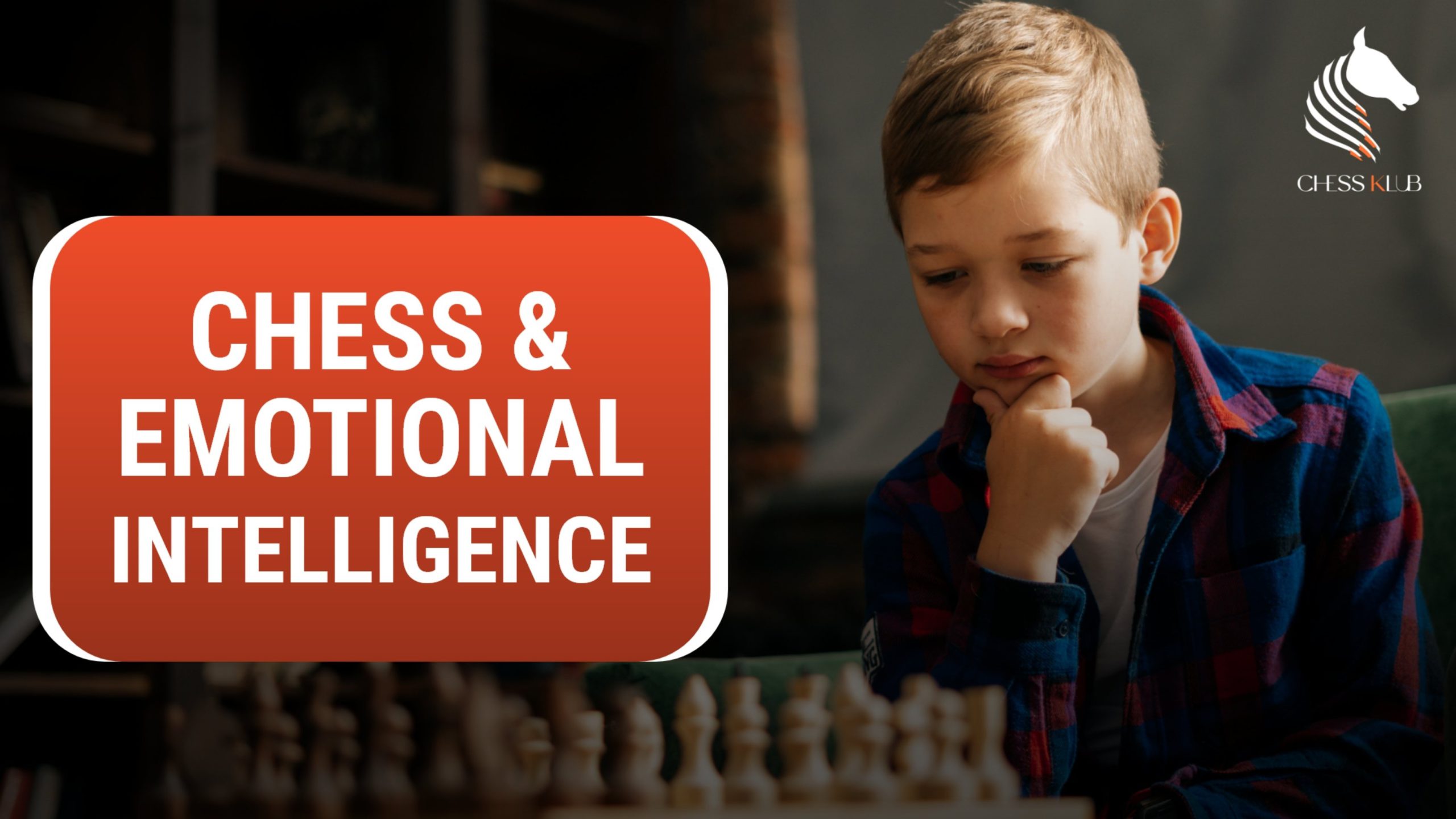Want Resilient, Emotionally Intelligent Children? Try These tips!

As a chess parent, you might have had your fair share of emotional meltdowns and self-doubting episodes from your budding chess players.
How do you overcome them?
We all know that resilience and emotional intelligence are closely related to each other. In fact, emotional intelligence is the foundational building block of resilience.
Emotional intelligence is ``the capacity to be aware of, control, and express one's emotions, and to handle interpersonal relationships with good judgment & empathy.``
A person’s emotional intelligence is a strong predictor of not just their ability to play better chess; it also helps in determining their job performance, success, the health of relationships, and overall happiness in life. The good news is that emotional intelligence is not an inborn trait, and we all can develop and grow it at any point in time.
Components of Emotional Intelligence
Behaviorists divide emotional intelligence into three components:
- Self-Awareness
- Mastery over Emotion
- Empathy and Stability in Interactions and Relationships
There’s a strong connection that one can make between Chess and emotional intelligence. Chess players swear by keeping their calm in tense situations and making a comeback despite odds stacked against them, simply on the basis of stability, self-awareness, and empathy.
The grim our serious look on the faces of most chess players is not about being sullen or sad but is due to utmost concentration, focus, and attentiveness that comes with training for hours and honing their skills.
Here are some tips on developing emotional intelligence and fostering resilience shared by chess moms, chess coaches, and the Chess Klub fraternity.
Experience disappointments and learn to put it in perspective
There’s a famous chess quote that says: “Unless you have a big fall, you can’t judge where you stand correctly.”
Losing is just another lesson learned in chess.
Players analyze their games, discuss them with coaches, and plan the strategy for the next game, should a similar situation arise.
Validate feelings
In today’s aloof world, our children are socially isolated and don’t get enough chances to experience big emotions like pain, disappointment, failure, frustration, unwanted circumstances.
In just a 30-minute game played on an 8X8 board, a chess player goes through every emotion listed above, and these normal bumps on the road for a young chess player are just another opportunity to work on their emotional intelligence and build resilience. Accepting, offering words to express their feelings, and helping them process their emotions to be better at managing them next time around, is something that chess players often learn from their parents and support system.
In his famous book, Emotional Intelligence (1995), Daniel Goleman stated that not just pure intelligence but our socio-emotional competence also helps us in succeeding in today’s society.
Many parents today look for teaching their kids life-skills that would matter in the long run, and chess provides a wonderful opportunity to learn through play.
Major goals that can be achieved using Chess
Developing social skills with chess
Manage your feelings – Chess is a sublime game of managing feelings and emotions. Every position of the game could spell victory or defeat, and the player learns to manage them.
Control your impulses – There may be a strong urge to make a move, but is it a trap set by your opponent? Is it a Zugzwang* that you simply failed to notice? If you move too fast and succumb to your impulses, you would soon be in grave danger.
Delayed gratification is sweeter – Players wait till the very end to savor the victory. It is also better not to get blindsided by a sure win and stop guessing the opponent’s probable moves. You would learn how “Prophylaxis” is an important lesson and has to be followed in every chess game.
Behavioral Skills
Non-Verbal Communication – A glint in the eye of the opponent or a hint of a smile is enough to forewarn a chess player that maybe they are making an expected mistake that could cause the game. Being able to read the cues and understand the nuances of non-verbal communication comes in extremely handy to chess players.
Verbal Communication – A chess player improves his/her game not just by observing but by being vocal about discussing, being open to criticism, and actively listening to suggestions and advice made by other players as well as coaches. We have seen this happening in our so many online chess classes when coaches point out the mistakes or players help others and participate in positive peer discussions.
Decision Making Skills
Chess is a sport.
And like any other sport, setting goals, identifying alternatives, working your way around the constraints, controlling impulses, and assume responsibility for the consequences comes naturally to a Chess player.
Facing Competition
Chess stokes competitive spirit and players learn to pit themselves against their peers in a friendly but highly cut-throat competitive environment. Players learn to be gracious winners and sporty losers.
While interacting with coaches who have faced similar situations themselves makes them confident and gives them a sense of independent accomplishment achieved with the help of a team.
Community
We have stories that truly warm our hearts about how older chess players at Chess KLUB helped younger ones set up their clocks, helped them understand the basics, and discussed rules with the sole purpose of cooperation with another chess lover!
The camaraderie that chess promotes is a sight to behold, and students practicing their game skills right before facing each other in a tournament is not uncommon.
Fair Play
Chess starts on an equal footing for both sides, and playing chess is truly a humbling experience because even the most expert players are wary of making that one mistake that will snatch their win and place it in the hand of a rookie chess player they are facing.
Therefore, early on, chess players realize that it is important to be fair and learn how to treat others equally. Race, gender, age, even rankings don’t matter as everyone plays by the same rules.
The game of chess doesn’t’ have any favorites.
Practicing Hard and Owning up
Taking responsibility for one’s actions is the first lesson in chess, and players are taught how to make sure they make the right decisions in the toughest of situations.
With consistent practice and determination to succeed, players learn that mistakes do happen, and not repeating them makes them a better player, and in our view, a better human being in the long run.
No matter what grades children get in their studies or what their physical skills are, the litmus test of whether they become emotionally intelligent, happy, well, resilient, and thriving human beings is determined as much by what goes on within their minds and their capacity to navigate difficult emotions, manage thoughts, and process experiences can bring the best of themselves forward, whether on a chessboard or in life!
References and Bibliography
- Chopra, D., M.D. & Tanzi, R.E., Ph.D. (2012). Super Brain. New York: Harmony Books
- Siegal, D., M.D. & Bryson, T.P., Ph.D. (2011) The Whole-Brain Child. New York: Delacorte Press
- Gray, P., Ph.D. (2015). Declining Student Resilience: A serious problem for colleges. Psychology Today.
- 6 Steps to Building Kindness and Resilience with Dan Siegal (videos). The Dalai Lama Center for Peace and Education. http://dalailamacenter.org/learn/dan-siegel-6-steps-build-kindness-and-resilience-children
- Brooks, R., Ph.D. & Goldstein, Ph.D. (2001). Raising Resilient Children. Chicago: Contemporary Books
- Goleman, D. (2005). Emotional Intelligence: Why it can matter more than IQ. New York: Bantam Books https://www.amazon.com/Emotional-Intelligence-Matter-More-Than/dp/055338371X
- Siegal, D., Ph.D. & Bryson, T.P., Ph.D. (2016) No-Drama Discipline. New York: Bantam Books
- Siegal, D., Ph.D. & Hartzell, M., M.Ed. (2003) Parenting From the Inside Out: How a deeper self-understanding can help you raise children who thrive. New York: TarcherPerigee
- Highsmith, Susan. “Watching Our Words.” Journal of Prenatal & Perinatal Psychology & Health, vol. 31, no. 1, Association for Pre & Perinatal Psychology and Health, Oct. 2016, p. 45.




